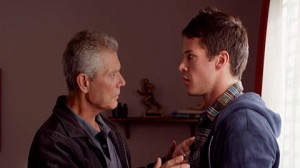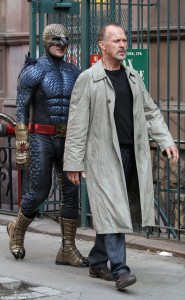Interview: Todd and Jedd Wider about the Bullying Documentary “Mentor”
Posted on October 24, 2014 at 3:56 pm
Producers Todd and Jedd Wider generously took time to answer my questions about their documentary, “Mentor,” the story of two teenagers who committed suicide following relentless bullying. The film, which received Honorable Mention for Best Documentary Feature at the 2014 Woodstock Film Festival this past weekend, will be shown this week at the Austin Film Festival:
Sunday, October 26 at 12:00pm @ Rollins Theatre
Thursday, October 30 at 7:00pm @ IMAX Theatre
How did you first hear of the problems in Mentor?
We read about the problems several years ago as we were researching an idea to examine the concept of bystander versus upstander behavior.
Was it difficult to get the cooperation of the families?
No, they were very willing to help and wanted to share their stories.
What is the status of the lawsuit?
The Mohat lawsuit was settled, the Vidovic lawsuit is on appeal.
If you could have interviewed the principal or school counselor, what would you have asked?
All school representatives refused to speak with us. We would have asked one simple question: why?
If you could have interviewed the bullies, what would you have asked?
This film really is about the victims and the devastation that bullying can bring to individual families and the community at large.
What makes kids into bullies?
We feel that at this moment in time, with the rise of internet and social media, bullying is increasingly easier because it is more anonymous and impulse control is reduced to simply deciding to click a button on your computer. The anonymity has made the bullying more vicious because one can seemingly bully with almost no ramification. Look at what happened after Robin Williams tragic death with the amount of hateful tweets that his daughter received. In the past, when we grew up, you had to look someone in the eye if you bullied them. Now, you do not. The internet has essentially created a generation of cowards. As to why kids do it? One root cause has always bothered us which is the choice to pick on the outsider. You rarely see the captain of the football team or the head of the cheerleading squad getting bullied. It happens, but it is more rare. Usually it is a child that is somehow branded an outsider–a person that dresses a bit differently, or perhaps is smarter, or speaks differently, or thinks about things differently. There is a real tragedy here because we are a nation built from diversity. It was the diversity of all of the people that came here and brought with them different ideas and skills that helped build this nation. We should be celebrating diversity, not denigrating it.
Did the school take any steps in suicide prevention education and support?
You should ask the school this. We would argue not nearly enough was done.
What can schools do to be more effective? Are there any communities that have responded more effectively?
We feel that schools and parents need to teach kindness and empathy to children. One excellent program that helps kids learn basic civics and decency is Facing History and Ourselves which is available in many school around the country and internationally. If your school doesn’t offer this program or a similar program, ask your school administrators to bring it to your district.



